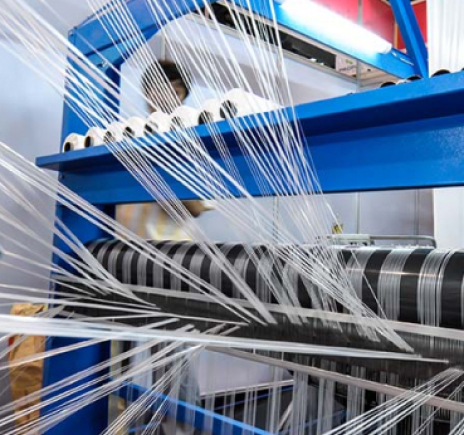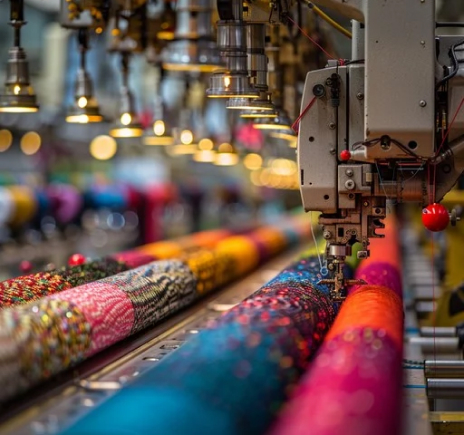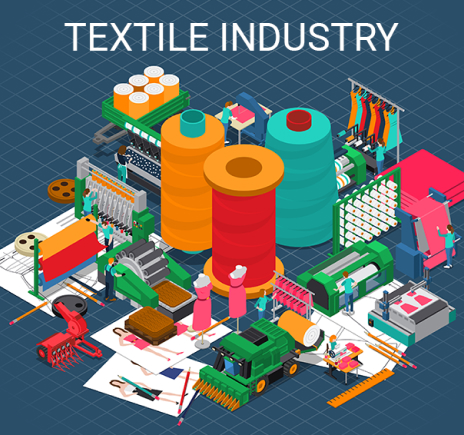
The Future of the Textile Industry: Innovations, Trends, and Sustainability
The textile industry is one of the oldest and most integral sectors of the global economy. With its deep roots in culture, fashion, and functionality, it has evolved significantly over the years. In recent times, the industry has faced various challenges and opportunities, ranging from sustainability concerns to rapid technological advancements. At Umiya Textile Enterprise, we believe in staying ahead of the curve and embracing innovations to shape the future of textiles.
1. Technological Advancements in Textile Manufacturing The textile industry is undergoing a technological revolution that is redefining how products are made. With advancements in automation, artificial intelligence, and robotics, manufacturers are streamlining production processes and improving efficiency. Innovations such as 3D knitting, digital printing, and smart textiles are opening up new possibilities for customization, speed, and cost-effectiveness.
2. The Rise of Sustainable Textiles Sustainability has become a key focal point in the textile industry, with growing consumer demand for eco-friendly products. The production of synthetic fabrics, coupled with the impact of textile waste, has raised concerns about environmental sustainability. However, new sustainable practices such as the use of organic cotton, recycled fibers, and biodegradable fabrics are emerging as solutions. Umiya Textile Enterprise is committed to embracing these eco-conscious methods to reduce our carbon footprint and contribute to a greener planet.
3. Textile Industry and Circular Economy The concept of a circular economy is gaining momentum in the textile industry, with a focus on minimizing waste and promoting the reuse and recycling of materials. By adopting circular business models, textile manufacturers can reduce the need for virgin materials and extend the lifespan of garments and fabrics. At Umiya Textile Enterprise, we are exploring ways to integrate circularity into our processes, offering products that can be repurposed or recycled at the end of their life cycle.
4. Emerging Trends in Textile Design and Fashion The textile industry is closely linked to fashion, and staying ahead of design trends is crucial for success. Innovations in textile design, such as sustainable prints, digital textiles, and fabrics with unique properties, are making waves in the fashion world. In 2025, expect to see more textiles that combine beauty with function—think UV-resistant fabrics, moisture-wicking materials, and fabrics that adapt to the wearer’s body temperature.
5. Smart Textiles: The Intersection of Fashion and Technology Smart textiles, or e-textiles, are rapidly gaining popularity in various sectors, including fashion, healthcare, and sportswear. These fabrics integrate sensors and other electronic components to provide real-time data and enhance user experience. From garments that monitor health metrics to fabrics with built-in lighting and sensors, the future of smart textiles is undoubtedly exciting. Umiya Textile Enterprise is exploring partnerships and collaborations to develop cutting-edge smart fabrics that can revolutionize the fashion and textile sectors.
6. Global Market and Export Trends The textile industry has become increasingly globalized, with manufacturers reaching markets far and wide. Exporting textile products to different regions has expanded the reach of companies like Umiya Textile Enterprise, fostering international collaborations. As global markets continue to grow, it is essential for textile companies to stay updated on international trade policies, consumer preferences, and new market demands.
7. Challenges Faced by the Textile Industry Despite the immense potential for growth, the textile industry faces several challenges, including rising raw material costs, supply chain disruptions, and labor concerns. Additionally, ethical practices, fair wages, and worker safety are major considerations for businesses in the textile sector. At Umiya Textile Enterprise, we recognize these challenges and are committed to fostering a responsible and transparent supply chain while ensuring quality products.
Conclusion: As we move into a future where technological innovation, sustainability, and consumer demands continue to evolve, the textile industry stands at a crossroads. Companies like Umiya Textile Enterprise are working to drive positive change by adopting modern manufacturing techniques, supporting circular economies, and prioritizing sustainability. Together, we can build a brighter future for the textile industry—one that is both cutting-edge and environmentally responsible.
Stay tuned for more updates and insights on the textile industry, and how Umiya Textile Enterprise is playing a role in its transformation.


Write Your Comment